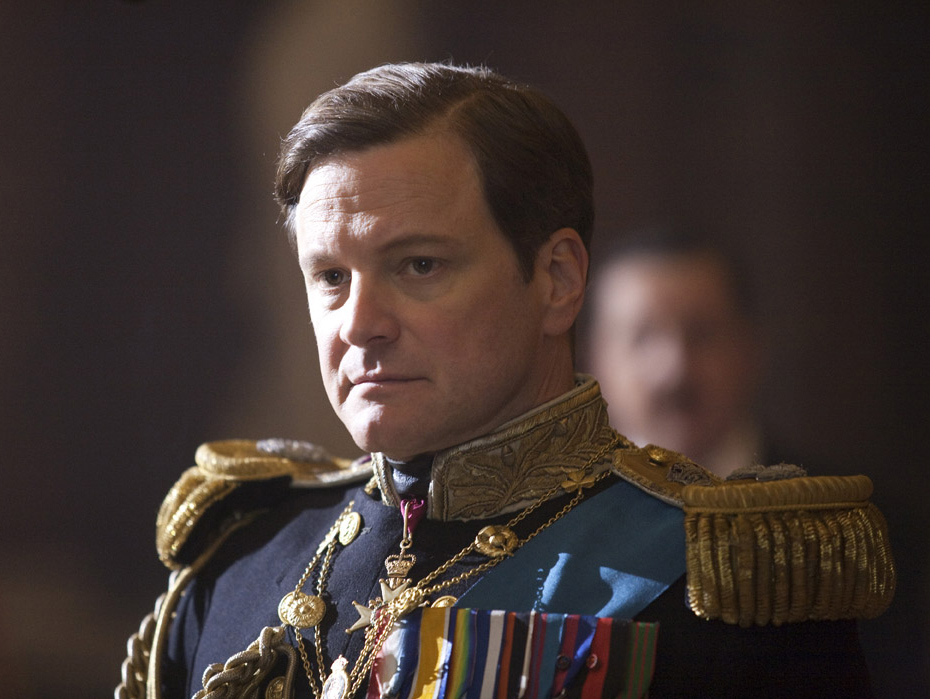It’s pretty presumptuous — not to mention trite — for a critic to talk about the movie a filmmaker should have made instead of the one they made. But it’s also a suggestion that’s inescapable after watching a movie like The King’s Speech. Here you have a concatenation of massive and fascinating historical events: the outbreak of the Second World War; the most desperate secession crisis in British history; the tail end of the Great Depression; internal political divisions among the royals and the government; and an unprecedented number of class struggles. Instead, Tom Hooper and David Seidler have made a movie about…a mild speech impediment suffered by the man who would one day be King George VI. It’s not the most interesting story in the film; it’s not even the most interesting story in the life of King George VI. Watching two hours of him attempting to correct a mild stutter with the aid of his quirky Australian speech therapist seems like enough to convince even people who don’t know the real historical events happening in the background that they’ve tuned in to the wrong movie.
The King’s Speech is a trifle, a frothy, delicate little concoction that tempts the emotions and senses while it’s being experienced but leaves absolutely nothing, not even an aftertaste, when it’s finished. No one is saying that every film has to be grim and gritty, but, presumptuous as it may be for me to say so, I’m convinced that when a story hands you background like the abdication crisis and the Great Slump, and you instead deliver a charming chamber piece about King Bertie and his quirky little family, you have somehow failed as a director. I am also convinced that if your film has many of the artificial, stagey qualities of a play, even though it was not a play to begin with, your approach to the material is a bit fuzzy. Helena Bonham Carter’s Duchess of York snacks on bonbons throughout the film, as if to remind us that we are consuming something light and airy with minimal nutritional value.
This all seems to point towards me hating the movie, which I absolutely did not. Hooper is a skillful director; some of the shots, particularly a snail’s-pace drive through a British industrial fog and the slickly paced delivery of the title speech itself, are lovely to watch. He also uses some clever camera techniques to both sell the idea of George VI’s isolation and deliver epic-scale filmmaking on an indie-film budget, and that’s not easy to do. Best of all, its performances are uniformly outstanding, with not a dud in the bunch; you can hate everything else about the movie and it will still come fiercely close to winning you over strictly on the strength of its acting. Bonham Carter and Geoffrey Rush as Lionel Logue are so consistently great in almost everything they do that it’s easy to just take it as read that they’re going to do well, and they certainly do here; Colin Firth will almost certainly be remembered in perpetuity for his performance as Stammering George, but Guy Pearce is quite magnificent as his brother Poor-Choice-of-Spouse-Making Edward. Timothy Spall has clearly been waiting a lifetime to play Winston Churchill, and old British pros like Derek Jacobi (as the Archbishop of Canterbury) and Michael Gambon (as George V) finely illustrate how they got to be old British pros. Movies like this live and die by their acting, and it’s so good here that it keeps the whole thing from collapsing.
That said, the overall thing is lacking; it has no weight, no depth, and no power. Much talk has been exchanged over its playing fast and loose with the historical facts, but much of it is easy enough to ignore for anyone who wisely hasn’t bothered to immerse themselves in the bogus intricacies of British royal silliness; but a few moments, particularly those involving once and future Prime Ministers and their attitudes towards George and Edward, are egregious enough to rate an eye-roll. The King’s Speech isn’t exactly calculating — if anything, it’s painfully sincere — but it contains so many elements designed to appeal to movie award voters with an affinity for a certain sort of prestige film (royalty, hist0ry-as-pageant, quirky humor, stories about lifelong pals that transcend class boundaries, adorable over-educated children, diseases and/or disorders that aren’t incurable or gross, triumphant and context-free endings, rampant upper lip stiffening) that it might as well have been written by OscarBot 9000. Tom Hooper has enough talent that it’s worth keeping an eye on what he does next, but the most creditable thing he pulls off here is to assemble a great cast of established actors and get them to deliver a slate full of fine performances. Without them, he’s got something that should earn shrugs, not awards.


I agree, the film is certainly is first and foremost a showcase of master acting, and is less than Oscar worthy in practically every other area. But as calculated an Oscar gambit as the “overcoming the stuttering” plot device is, I personally found it a bracing bit of therapy, re: my personal struggles with what stops me. In that regard, it did certainly leave an aftertaste.
Sorry for the typo, and overuse of certainly. No edit function, damn.
Pingback: Linkblogging For 17/02/11 « Sci-Ence! Justice Leak!